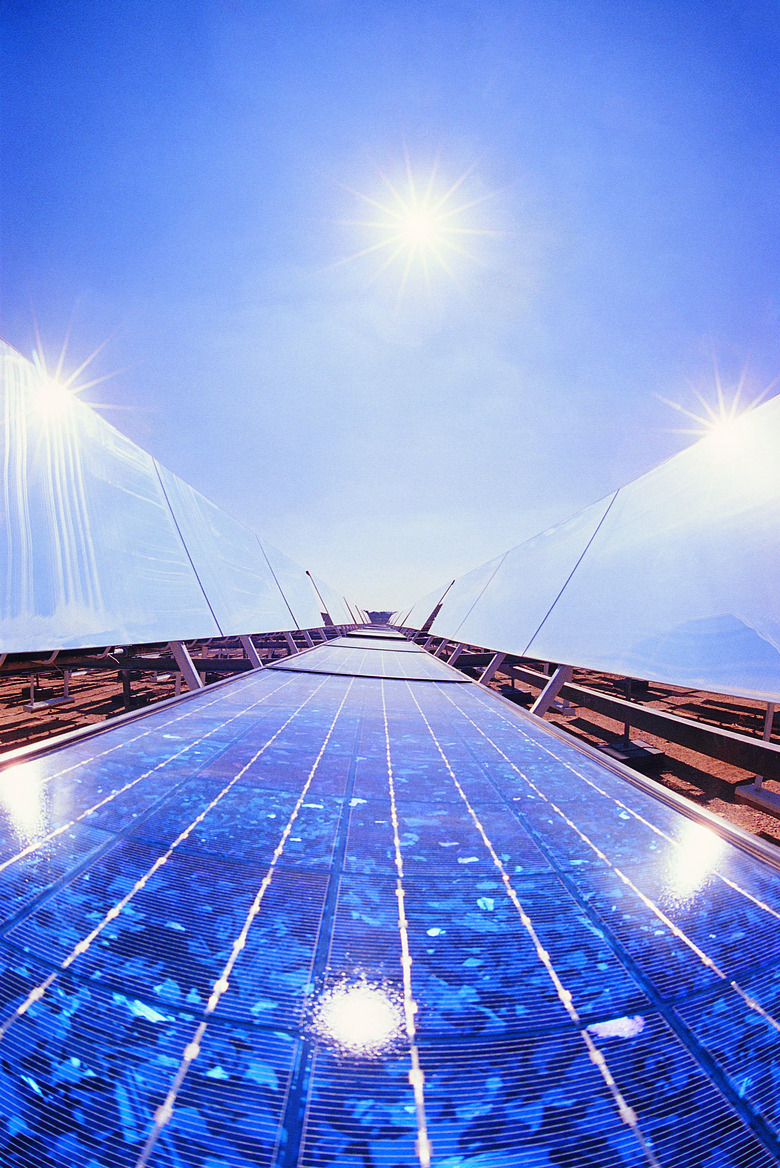Hazards Of Solar Power
Photovoltaic cells allow the generation of electricity from sunlight, representing one of the most emission-free methods of creating power. While this technology offers considerable potential for the future of humanity, it is not without its drawbacks. The hazards of solar power include many hurdles the technology must overcome before it can truly fulfill its green potential.
Greenhouse Gases
Greenhouse Gases
The production of solar panels often involves extremely potent greenhouse gases. One common compound in the industry is nitrogen trifluoride, which is 17,000 times more potent than carbon dioxide at trapping solar energy. Sulfur hexafluoride, another compound used to create certain types of panels, is the most potent greenhouse gas known to exist. While manufacturers design their production lines to trap these harmful gases, any breach in confinement could cause significant environmental damage.
Hazardous Byproducts
Hazardous Byproducts
In addition to the gases used, solar panel manufacture also produces toxic byproducts and polluted water. Each ton of polysilicon produced for solar panels produces four tons of silicon tetrachloride, a toxin that can poison topsoil and make it unsuitable for plant growth. An environmental impact study by San Jose State University suggests that it would take a solar panel one to three months, on average, to offset the energy required to deal with the toxic wastes used in its production.
Electrical Dangers
Electrical Dangers
Because solar is generally unsuited to appliances that demand lots of current like air conditioners and ovens, most homeowners that adopt solar do so for only a portion of their household's power needs. A typical installation includes a connection to the local power grid, and the household can "sell back" excess generated electricity during periods of low usage. Unfortunately, the power company equipment that steps down high-voltage current from transmission lines works both ways, so in the event of an outage, solar panels feeding back into the system can create lethal voltages for workers attempting to repair damage. For this reason, solar tie-in systems include an automatic feature to shut down solar generation in the event of a blackout.
Installation Risks
Installation Risks
Another hazard of solar power is the risks involved with installation. Because most home solar panels are rooftop installations, the potential for injury or death from falling is significant. The solar power industry does not keep regular statistics on injuries or deaths from solar installation, but roofing, electric work and carpentry are three of the most dangerous jobs in America, and solar installation combines all three. California has imposed strict safety regulations on solar installation companies, and new technology that allows installation at ground level or on horizontal surfaces like windows may reduce this danger.
References
Cite This Article
MLA
Kazmeyer, Milton. "Hazards Of Solar Power" sciencing.com, https://www.sciencing.com/hazards-solar-power-22759/. 24 April 2017.
APA
Kazmeyer, Milton. (2017, April 24). Hazards Of Solar Power. sciencing.com. Retrieved from https://www.sciencing.com/hazards-solar-power-22759/
Chicago
Kazmeyer, Milton. Hazards Of Solar Power last modified March 24, 2022. https://www.sciencing.com/hazards-solar-power-22759/
